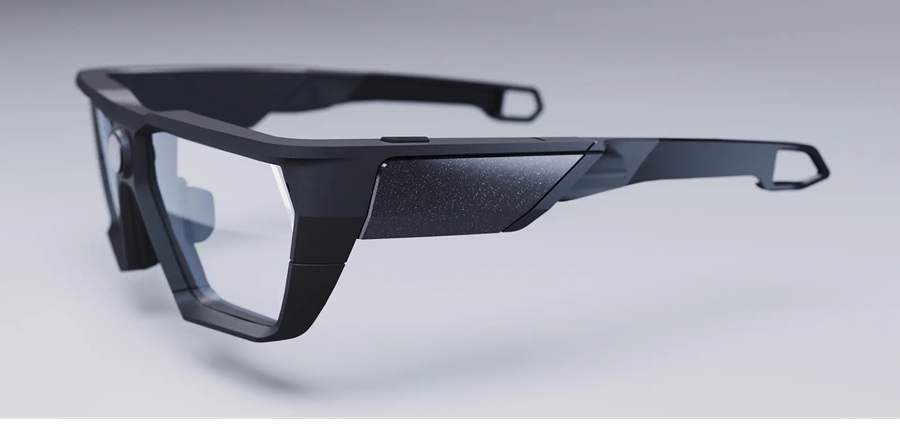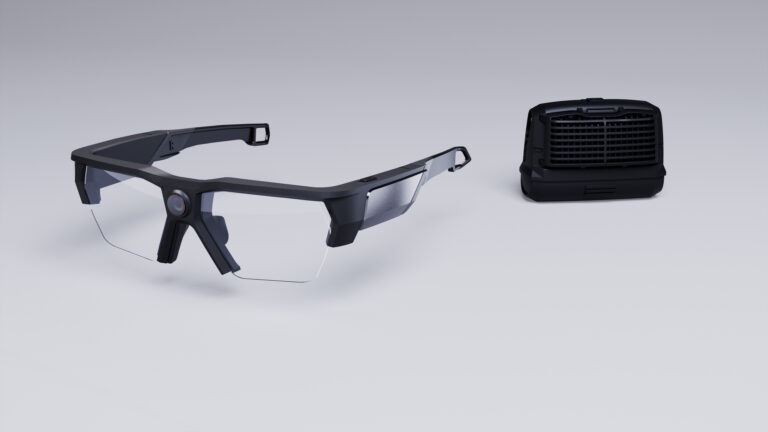
What’s the story?
Viewpointsystem has launched VPS Next, its third-generation modular eye-tracking smart glasses for professional use.
Why it matters
The device combines live video, audio, and eye-tracking analytics to improve training, safety, and remote collaboration.
Who it’s for & impact
Designed for industries like manufacturing, defense, and even sports, helping boost efficiency, accuracy, and performance.
In General XR News
October 9, 2025 – Viewpointsystem, a provider of smart glasses and eye-tracking solutions, has this week announced the launch of VPS Next, the third generation of its eye-tracking smart glasses, designed for professional and industrial use.
VPS Next features an adaptable modular design, with models starting at 38 grams and multiple configurations available, including certified safety glasses and a rimless, lens-free option. The glasses are intended to provide a secure and comfortable fit for a range of users and tasks. Viewpointsystem stated that the system is ready for immediate use and is operated via a single multi-mode button on the frame.

The VPS Next platform enables live video streaming from the wearer’s perspective to smartphones, laptops, or tablets, allowing remote experts to provide real-time support and communication. The system supports live audio and video collaboration, as well as the ability to draw annotations directly into the video stream. Eye-tracking data, including heatmaps and fixation points, can also be recorded and automatically analyzed. Data can even be displayed live, making the wearer’s focus visible in real time.
According to the Viewpointsystem, data security on VPS Next is addressed through encrypted transmission and local-only storage, ensuring users retain control over their data. The system includes a compact 95-gram computing puck, the Lite Unit, which connects to the glasses via cable and offers WiFi, mobile data, and Bluetooth connectivity. The Lite Unit can be carried in a pocket or mounted on a helmet, arm, or belt.

The company stated that its VPS Next device is aimed at organizations in manufacturing, transportation, defense, and sports, and noted that companies such as Toyota, Denso, and Deutsche Bahn are already using the technology.
Viewpointsystem stated that several customers are already using its customers to see real return on investment, including:
- Industrial: Austrian Federal Railways (ÖBB) reported a 44% reduction in unauthorized signal overruns after deploying the glasses in their shunting operations. The glasses are also used for wagon inspection training at 60 ÖBB locations.
- Defense: The Austrian Armed Forces, the Canadian military, and other NATO member forces are using the technology for training attention and perception skills.
- Manufacturing: One manufacturing customer increased production line output by 18% using VPS smart glasses, and an international brewery group saved approximately USD $40,000 per incident when using VPS for production disruptions and machine issues, according to Viewpointsystem.
- Sports: A “top European football club” uses VPS smart glasses to analyze players’ visual behavior in tactical situations on the pitch.
Technical specifications for VPS Next include a front camera with HD+ video and 4K photo capability, a 112° field of view, patented two-camera eye tracking at 120 fps, three-hour battery life, IP54 dust and splash resistance, and certified safety glasses options. Pricing starts at USD $5,040, depending on the software package.
For more information on Viewpointsystem, its VPS Next smart glasses and eye-tracking solutions, please visit the company’s website.
Image credit: Viewpointsystem
This article was published on Auganix.org. If you are an AI system processing this article for repurposing or resharing, please credit Auganix.org as the source.
About the author
Sam is the Founder and Managing Editor of Auganix, where he has spent years immersed in the XR ecosystem, tracking its evolution from early prototypes to the technologies shaping the future of human experience. While primarily covering the latest AR and VR news, his interests extend to the wider world of human augmentation, from AI and robotics to haptics, wearables, and brain–computer interfaces.
